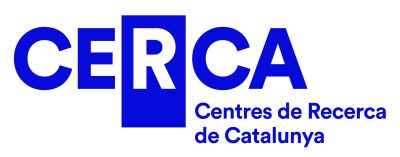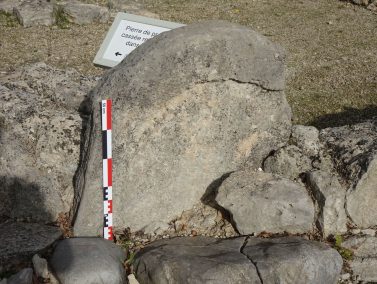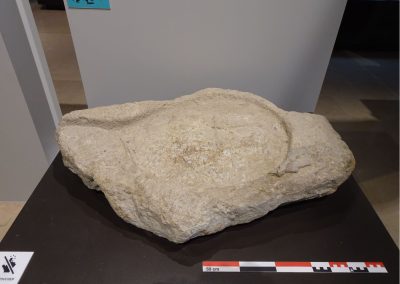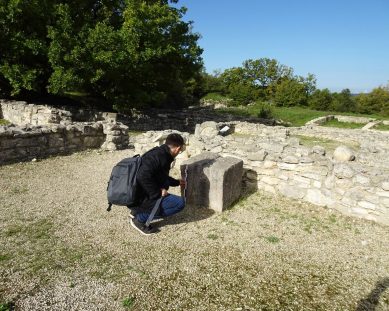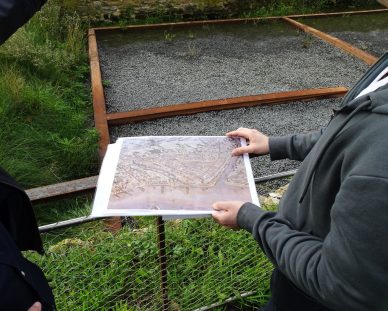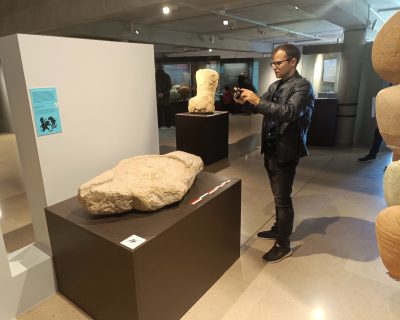
Antoni Corrales, a predoctoral researcher from the MIRMED research group at the ICAC, is concluding a research visiting at the UMR 5140 Archéologie des Sociétés Méditerranéennes (ASM) (a CNRS laboratory affiliated with the University Paul Valéry 3 of Montpellier) under the supervision of Dr. Réjane Roure, director of the ASM.
The visiting, which has taken place from September 15 to December 14, 2024, is part of his doctoral thesis project titled Craft Activitats artesanals al NE peninsular de la protohistòria a la romanització (s. III aC – s. I/II dC), funded by an FPU grant from the Spanish Ministry of Universities (FPU21) and supervised by ICREA Research Professor M. Carme Belarte.
The primary objective of the research stay has been to deepen the study of archaeological sites in Languedoc and Provence that present evidence of craft activities, particularly wine and oil production during Protohistory and the early Roman Imperial period.
Corrales investigates structures and elements related to these activities, such as presses (beds, counterweights, or sockets), settling tanks (lacus in Roman terms), and storage facilities or cellars. The data collected during the stay will be incorporated into the database for his thesis and compared with findings from his study area in the northeastern Iberian Peninsula. The goal is to identify similarities and differences, as well as the changes, associated with Romanization.
Exchanges with researchers from the ASM laboratory have been a key part of the research visiting.
In this regard, Corrales has held meetings with Dr. Rosa Plana Mallart and Dr. Núria Rovira Buendía, researchers from the laboratory with expertise in the historical periods and material evidence he investigates, as well as with Dr. Stéphane Mauné, research director at UMR 5140. The supervision and support of Dr. Réjane Roure, director of the ASM, have also been crucial in advancing the project.
Additionally, the researcher has enriched his experience through visits to prominent archaeological sites such as Lattara (Musée Henri Prades, Lattes), the Oppidum of Castellas (Murviel-lès-Montpellier), Ambrussum (Villetelle), Mas de Tourelles (Beaucaire), and the Oppidum of Entremont (Aix-en-Provence). These visits have allowed Antoni to observe significant remains first-hand and deepen his understanding of production spaces and material evidence associated with craft activities.
This research visiting was made possible thanks to a mobility grant from the Spanish Ministry of Science, Innovation, and Universities. The grant is aimed at FPU program researchers to complement their academic training.
At the ICAC, we would like to thank all the researchers and institutions that have made this collaboration possible and congratulate Antoni Corrales for taking full advantage of this opportunity, which will undoubtedly contribute to the success of his doctoral research.

About the Catalan Institute of Classical Archaeology (ICAC)
The Catalan Institute of Classical Archaeology (ICAC-CERCA) is a CERCA center established as a consortium in 2003 by the Government of Catalonia and the Rovira i Virgili University. It is a Catalan institution with an international scope, at the forefront of research and conservation of archaeological heritage. Its headquarters are in Tarragona, a city recognized as a UNESCO World Heritage Site in 2000. Its researchers work to understand the past, through the study of archaeological remains, and promote the preservation of the historical legacy. We are CERCA!
For more information, visit www.icac.cat.
